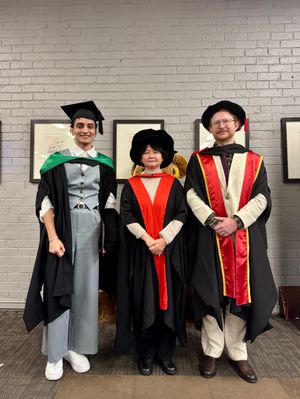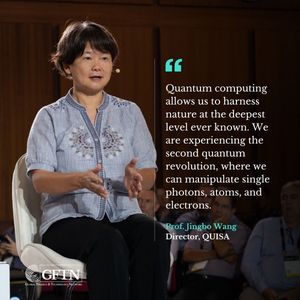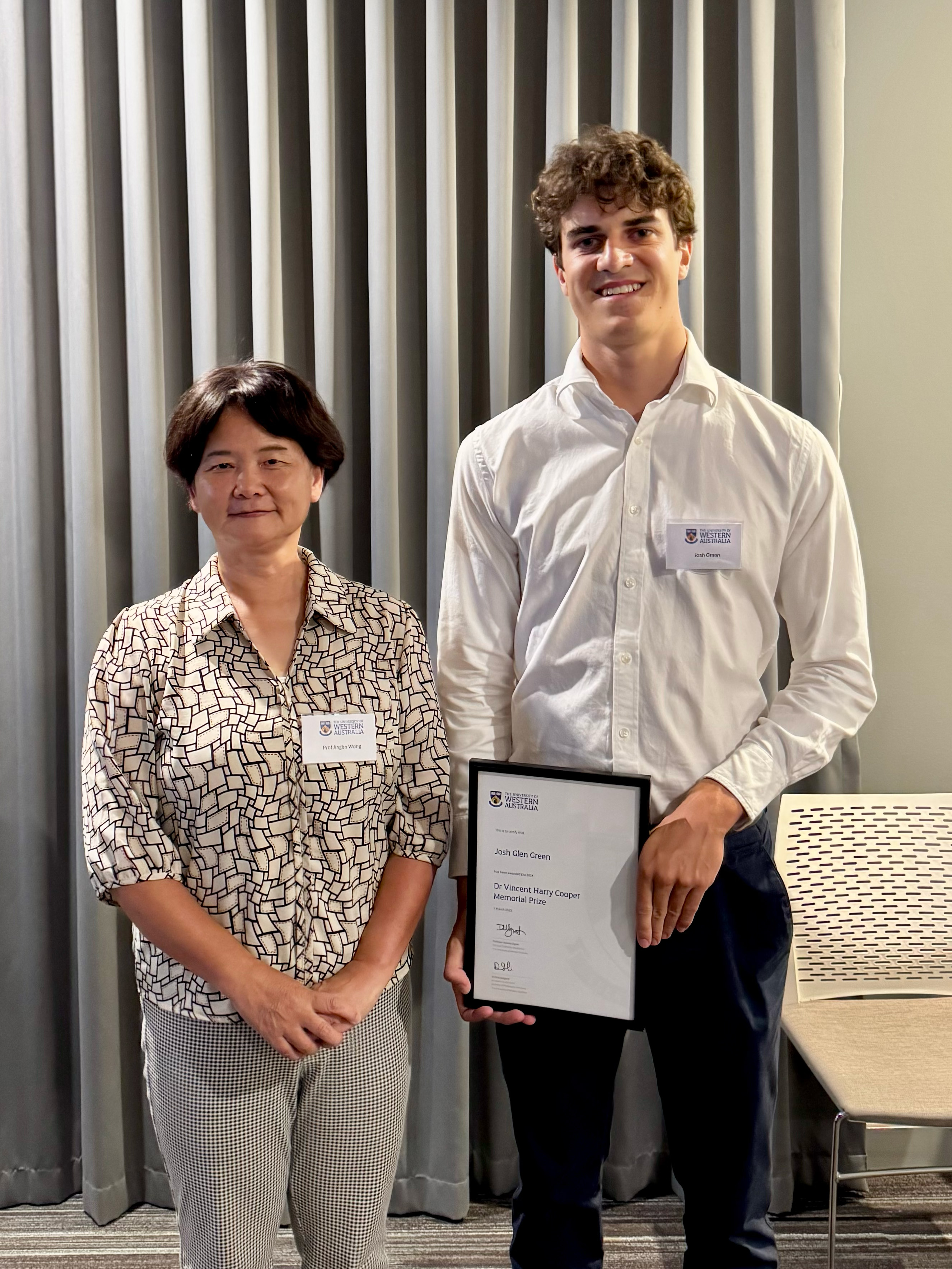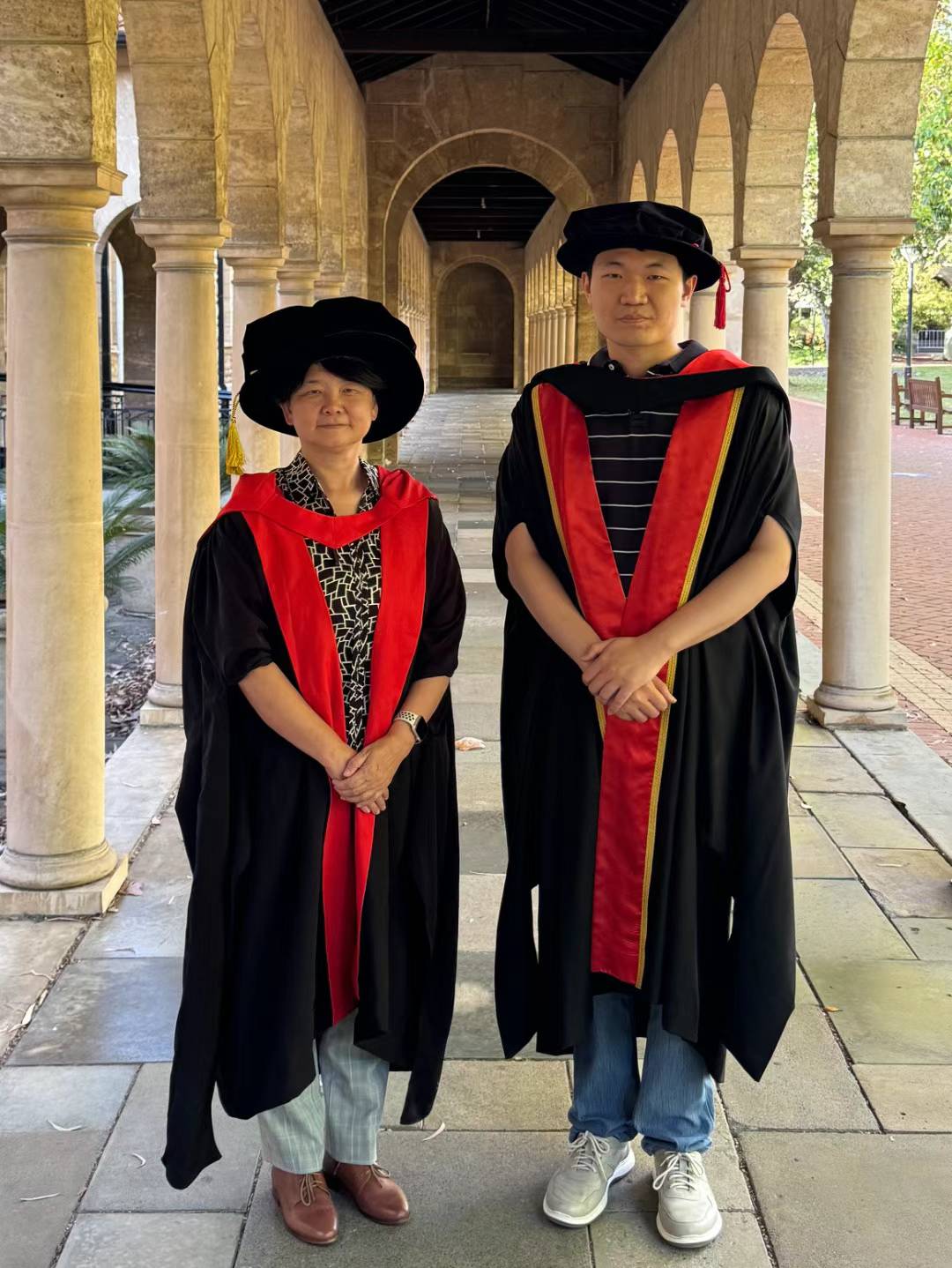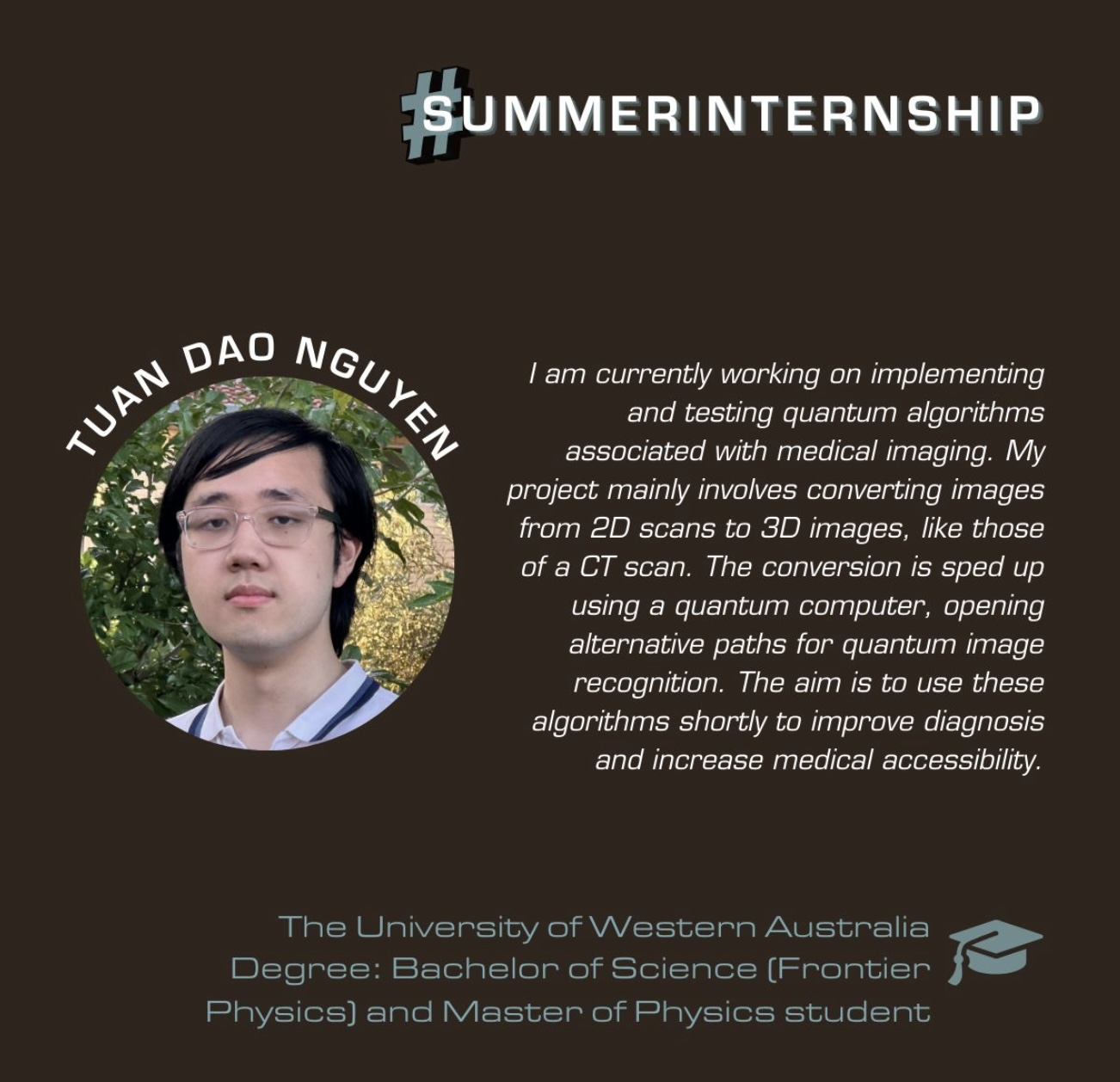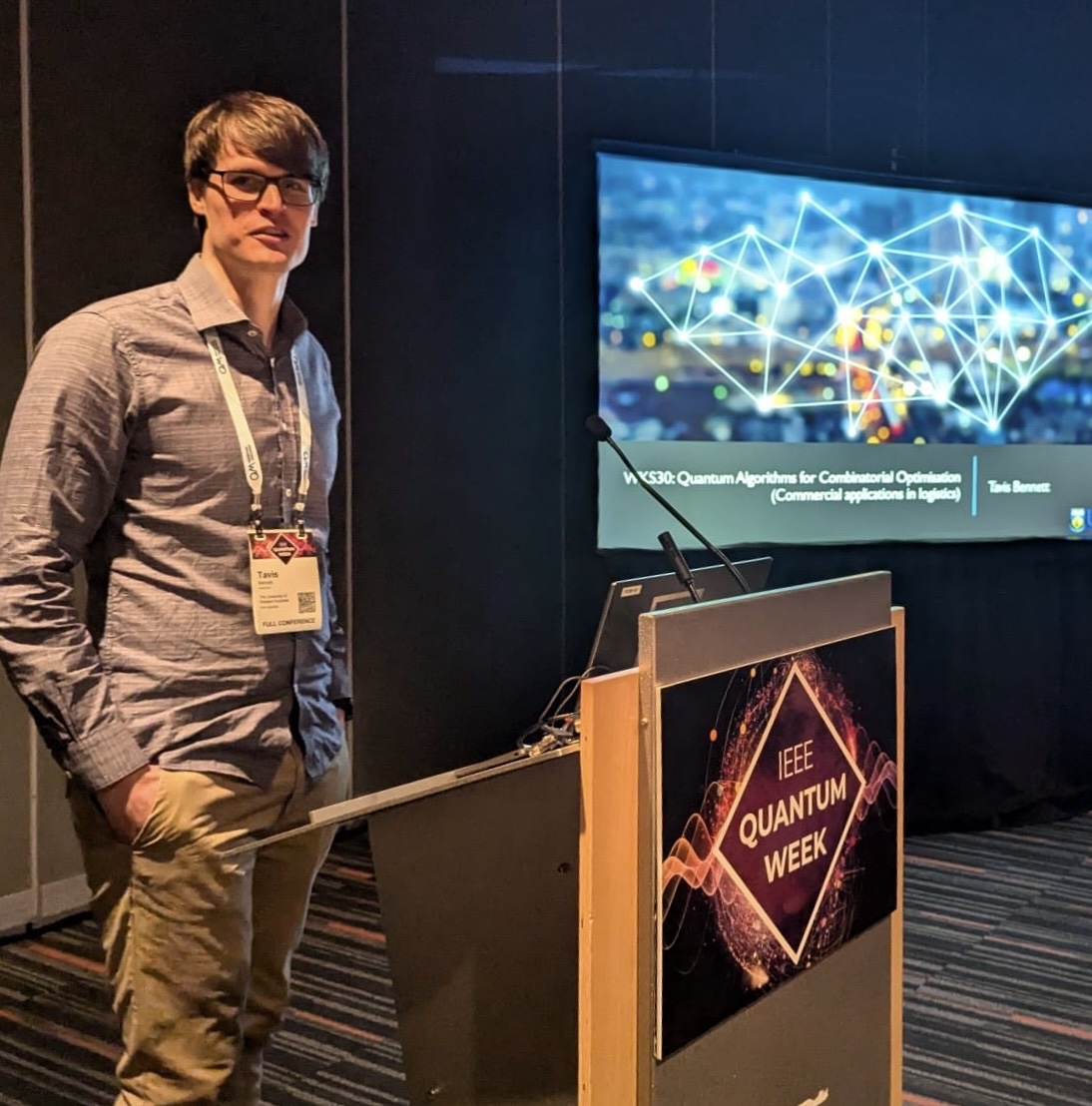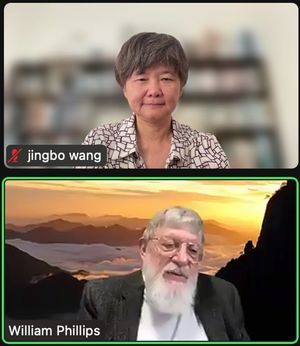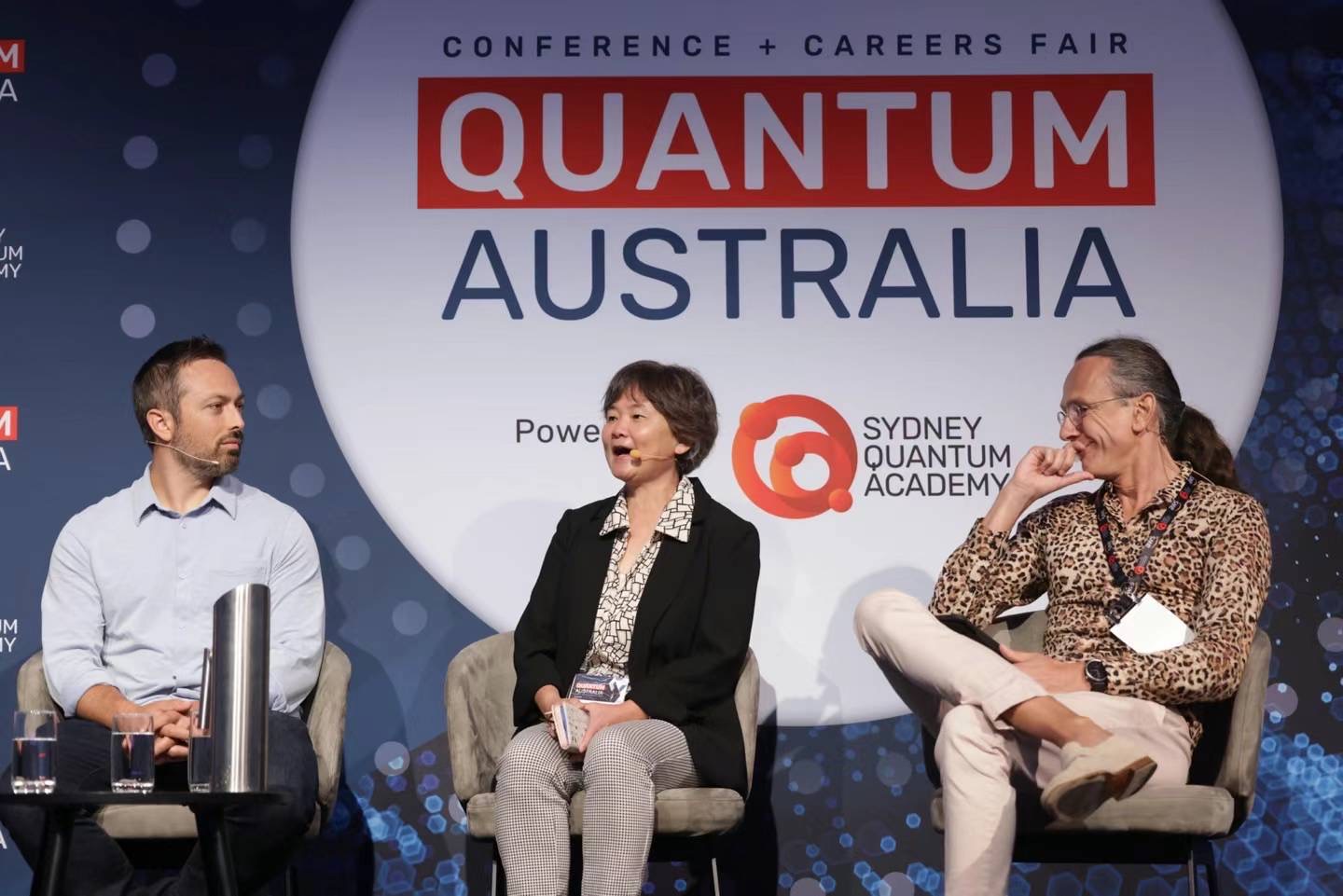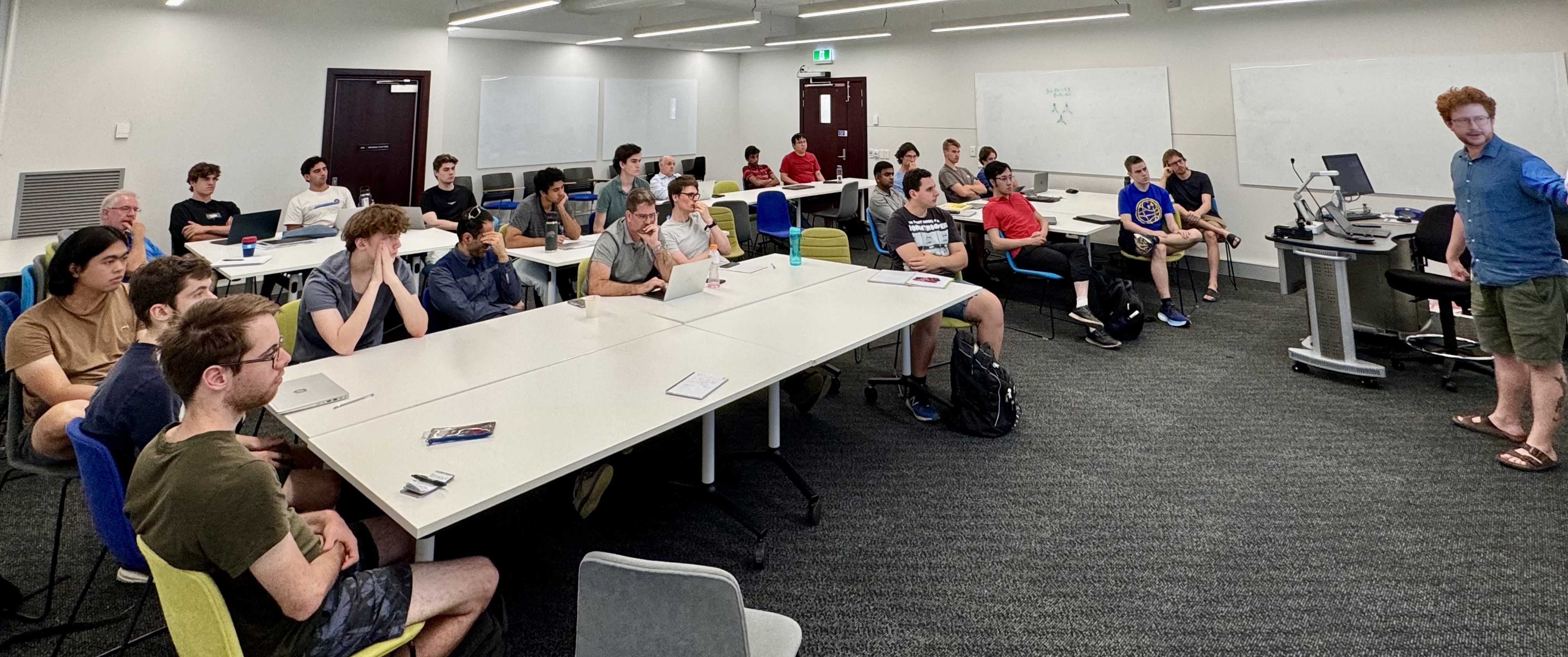Quantum computation is a rapidly evolving interdisciplinary field, which has attracted researchers from physics, computer science, mathematics, chemistry, and electronic engineering. Instead of brute-force miniaturization of basic electronic components, quantum computation utilizes entirely new design architecture and promises to solve problems that are intractable on conventional computers. It offers the prospect of harnessing nature at a much deeper level than ever before, providing a wealth of new possibilities for information processing, numerical simulation, and secure communication.
PHYS3005 (for physics students) and PHYS4021 (for maths & computer science students):
These introductory units will provide students with a comprehensive understanding of its core concepts and applications. Students will explore the fundamentals of quantum computing, including the historical development of computational tools, the power of quantum superposition and parallelism, the foundational elements of quantum bits (qubits), state vectors, quantum circuits and unitary operators. This foundational knowledge will also extend to the physical implementation of quantum gates, offering insight into how these theoretical operations are realized in real-world quantum hardware. The curriculum then shifts to practical applications with an exploration of key quantum algorithms. Students will learn about the Deutsch-Jozsa algorithm, Shor's algorithm for integer factorization, the properties of the quantum Fourier transform, Grover's search algorithm, and quantum optimization techniques. Finally, students will be introduced to quantum information, including quantum teleportation, quantum cryptography, quantum bit commitment, and quantum communication.
PHYS4022:
This unit provides an in-depth exploration of advanced topics in quantum information, computation, and communication, equipping you with the essential knowledge and skills for a career in this rapidly evolving field. You'll delve into quantum algorithm design and analysis, covering principles of efficient quantum computation and the fundamental limits of quantum universality, computability, and complexity. We'll examine powerful algorithms like the HHL (Harrow-Hassidim-Lloyd) algorithm and explore quantum Hamiltonian simulation. You'll also investigate advanced techniques such as quantum phase estimation (QPE), quantum amplitude amplification (QAA), quantum singular value decomposition (QSVD), quantum principal component analysis (QPCA), Qubitization (block encoding), and quantum image and signal processing in general. Beyond these theoretical foundations, the unit also addresses a wide range of exciting applications in diverse fields like medicine, bioinformatics, geoscience, finance, and logistics optimization.
Partner Organizations: QUISA & Quantum Girls
Dates: November 18 – December 20, 2024
Location: The University of Western Australia, Crawley Campus
Project Overview
The Quantum Games Summer Internship was a five-week, project-based program focused on developing educational tabletop games that introduce quantum computing concepts to school-aged learners. Interns explored creative ways to embed principles such as superposition, entanglement, and quantum measurement into gameplay mechanics.
Objectives
Creator: Yao Tang
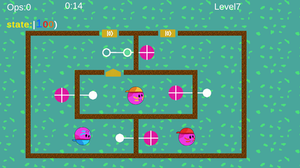
Description:
A puzzle-based game where your electrons are trapped in a complex maze, and the only way to guide them to freedom is by using quantum logic gates. Players must apply their knowledge of quantum computing to manipulate electron states, strategically operating quantum circuits to navigate the maze. By mastering quantum principles and carefully selecting the right gates, you’ll alter the electrons’ quantum states and lead them to escape. Think ahead, experiment with quantum logic, and conquer the Quantum Maze!
You can play this web browser game here: Quantum Maze
Creator: Nicholas Davies
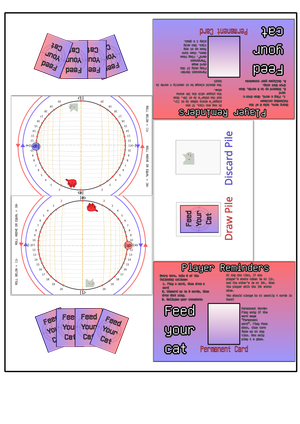
Description:
A competitive tabletop game where players manipulate quantum bits (qubits) to feed their cat. Each player controls a qubit, which can exist in different states, including |0⟩, |1⟩, |+⟩, and |-⟩. The goal is to collapse your qubit into the |0⟩ state while forcing your opponent’s qubit into the |1⟩ state. Once this happens, the feeding machine activates, and the winning player’s cat gets fed—while the loser’s cat is left hungry and complaining. Strategic quantum decision-making determines whose feline reigns supreme!
Creator: Aidan Smith
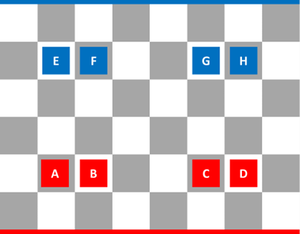
Description:
Two-player abstract strategy board game played on a 6x8 checkered board, where players aim to push one of their four pieces past the end of the board. Be careful, as pieces can capture other pieces, so you will have to position your pieces, use Quantum Superposition and Probability Amplification thoughtfully to outwit your opponent!
Creator: Andrew Freeland
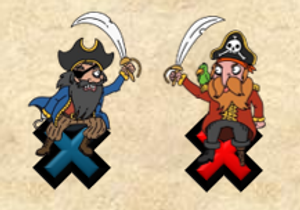
Description:
Dig up more treasure than your doubloon-hungry swashbuckling
opponents, whilst trying to avoid digging up bombs. But here’s the catch: in a quantum twist of
fate, the treasure and the bombs are in a state of superposition! That’s right, every spot ye choose to dig holds both treasure and a bomb—at the same time! So, ye might strike gold... or disaster (BOOM). What ye unearth depends on the fickle laws of Quantum Physics!
In this game, you have a variety of quantum powers at your
disposal which can be used to improve your odds of finding the treasure, while
keeping your opponents at bay. For example, you may like to entangle your
opponents to with a barrage of bombs or dig up many potential treasure sites at
the same time to maximise your riches! Manipulating an opponent’s dig site using
quantum noise cards may also aid you in your quest, and you will become very
well-acquainted with the safety (and scarcity) of bomb defuses. May the odds be
in your favour matey!
Creator: Leo Oldfield
Description:
Circuit Surfers is a fast-paced game that teaches the basics
of quantum computing. Players manipulate quantum gates on a circuit to
match incoming barrier states and pass through.
Learn quantum computing concepts through interactive
gameplay and strategic problem-solving!
You can download the game for windows here: Circuit Surfers
Quantum Girls (QG) is a national project that introduces quantum science and quantum computing to school students in years 5-12, in an engaging and interactive way - changing attitudes and building confidence toward STEM subjects.
Quantum computation is a rapidly evolving interdisciplinary field, which has attracted researchers from physics, computer science, mathematics, chemistry, and electronic engineering. Instead of brute-force miniaturization of basic electronic components, quantum computation utilizes entirely new design architecture and promises to solve problems that are intractable on conventional computers. It offers the prospect of harnessing nature at a much deeper level than ever before, providing a wealth of new possibilities for information processing, numerical simulation, and secure communication.
PHYS3005 (for physics students) and PHYS4021 (for maths & computer science students):
These introductory units will provide students with a comprehensive understanding of its core concepts and applications. Students will explore the fundamentals of quantum computing, including the historical development of computational tools, the power of quantum superposition and parallelism, the foundational elements of quantum bits (qubits), state vectors, quantum circuits and unitary operators. This foundational knowledge will also extend to the physical implementation of quantum gates, offering insight into how these theoretical operations are realized in real-world quantum hardware. The curriculum then shifts to practical applications with an exploration of key quantum algorithms. Students will learn about the Deutsch-Jozsa algorithm, Shor's algorithm for integer factorization, the properties of the quantum Fourier transform, Grover's search algorithm, and quantum optimization techniques. Finally, students will be introduced to quantum information, including quantum teleportation, quantum cryptography, quantum bit commitment, and quantum communication.
PHYS4022:
This unit provides an in-depth exploration of advanced topics in quantum information, computation, and communication, equipping you with the essential knowledge and skills for a career in this rapidly evolving field. You'll delve into quantum algorithm design and analysis, covering principles of efficient quantum computation and the fundamental limits of quantum universality, computability, and complexity. We'll examine powerful algorithms like the HHL (Harrow-Hassidim-Lloyd) algorithm and explore quantum Hamiltonian simulation. You'll also investigate advanced techniques such as quantum phase estimation (QPE), quantum amplitude amplification (QAA), quantum singular value decomposition (QSVD), quantum principal component analysis (QPCA), Qubitization (block encoding), and quantum image and signal processing in general. Beyond these theoretical foundations, the unit also addresses a wide range of exciting applications in diverse fields like medicine, bioinformatics, geoscience, finance, and logistics optimization.
Partner Organizations: QUISA & Quantum Girls
Dates: November 18 – December 20, 2024
Location: The University of Western Australia, Crawley Campus
Project Overview
The Quantum Games Summer Internship was a five-week, project-based program focused on developing educational tabletop games that introduce quantum computing concepts to school-aged learners. Interns explored creative ways to embed principles such as superposition, entanglement, and quantum measurement into gameplay mechanics.
Objectives
Creator: Yao Tang

Description:
A puzzle-based game where your electrons are trapped in a complex maze, and the only way to guide them to freedom is by using quantum logic gates. Players must apply their knowledge of quantum computing to manipulate electron states, strategically operating quantum circuits to navigate the maze. By mastering quantum principles and carefully selecting the right gates, you’ll alter the electrons’ quantum states and lead them to escape. Think ahead, experiment with quantum logic, and conquer the Quantum Maze!
You can play this web browser game here: Quantum Maze
Creator: Nicholas Davies

Description:
A competitive tabletop game where players manipulate quantum bits (qubits) to feed their cat. Each player controls a qubit, which can exist in different states, including |0⟩, |1⟩, |+⟩, and |-⟩. The goal is to collapse your qubit into the |0⟩ state while forcing your opponent’s qubit into the |1⟩ state. Once this happens, the feeding machine activates, and the winning player’s cat gets fed—while the loser’s cat is left hungry and complaining. Strategic quantum decision-making determines whose feline reigns supreme!
Creator: Aidan Smith

Description:
Two-player abstract strategy board game played on a 6x8 checkered board, where players aim to push one of their four pieces past the end of the board. Be careful, as pieces can capture other pieces, so you will have to position your pieces, use Quantum Superposition and Probability Amplification thoughtfully to outwit your opponent!
Creator: Andrew Freeland

Description:
Dig up more treasure than your doubloon-hungry swashbuckling
opponents, whilst trying to avoid digging up bombs. But here’s the catch: in a quantum twist of
fate, the treasure and the bombs are in a state of superposition! That’s right, every spot ye choose to dig holds both treasure and a bomb—at the same time! So, ye might strike gold... or disaster (BOOM). What ye unearth depends on the fickle laws of Quantum Physics!
In this game, you have a variety of quantum powers at your
disposal which can be used to improve your odds of finding the treasure, while
keeping your opponents at bay. For example, you may like to entangle your
opponents to with a barrage of bombs or dig up many potential treasure sites at
the same time to maximise your riches! Manipulating an opponent’s dig site using
quantum noise cards may also aid you in your quest, and you will become very
well-acquainted with the safety (and scarcity) of bomb defuses. May the odds be
in your favour matey!
Creator: Leo Oldfield
Description:
Circuit Surfers is a fast-paced game that teaches the basics
of quantum computing. Players manipulate quantum gates on a circuit to
match incoming barrier states and pass through.
Learn quantum computing concepts through interactive
gameplay and strategic problem-solving!
You can download the game for windows here: Circuit Surfers
Quantum Girls (QG) is a national project that introduces quantum science and quantum computing to school students in years 5-12, in an engaging and interactive way - changing attitudes and building confidence toward STEM subjects.
